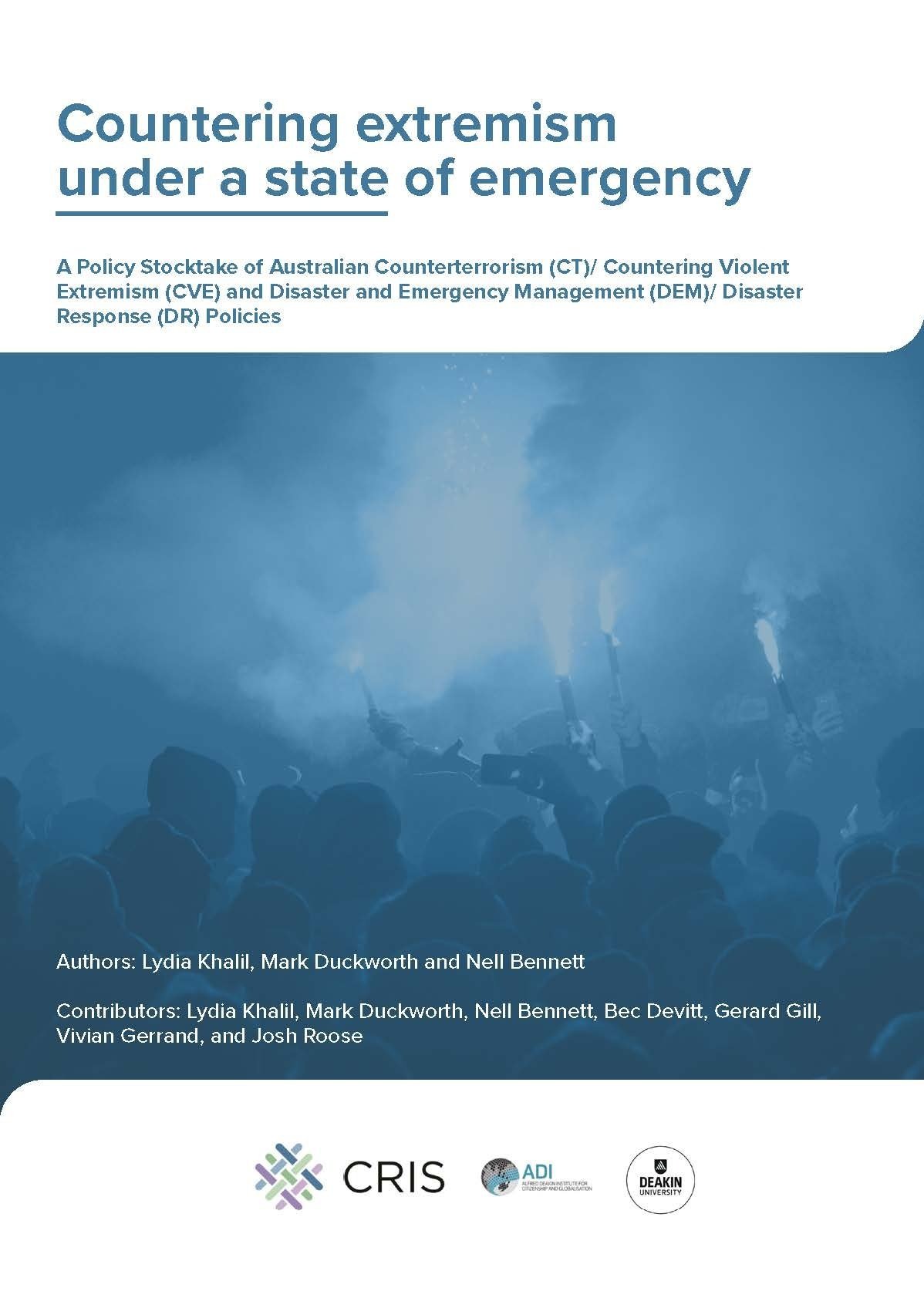Crisis Points: Countering Extermism in a State of Emergency
Project:
Crisis Points: Countering Extremism under a State of Emergency
Research Stream:
Authors:
Lydia Khalil, Mark Duckworth, Nell Bennett
DOI
Khalil, L., Duckworth, M., Bennett, N. (2025). ‘Crisis Points: countering violent extremism Under a state of emergency’, Centre for Resilient and Inclusive Societies. Melbourne, Australia
Suggested citation
In Australia as elsewhere, violent extremist actors have exploited and instrumentalised a contested information environment during concurrent crises in 2020-2021 – including the COVID pandemic and natural disasters like the recent bushfires – to mobilise, plot and commit violent attacks, oppose government emergency responses and challenge or undermine social cohesion. Crises of this nature are likely to persist in one form or another; alongside evidence that natural disasters are on the rise (UN/CRED, 2020), there has been an equally unprecedented spread of misinformation and disinformation and contestation of the cause and origins of these crises (Cinelli, M., Quattrociocchi, W., Galeazzi, A., 2020) that will likely persist. Previous research findings have demonstrated that natural disasters like bushfires, hurricanes, earthquakes and pandemics have the potential to act as push factors to violence (Berrebi & Oswald, 2011; Fisher & Dugan, 2019; Kang and Skidmore 2018).
However, little is currently known about how natural disasters can impact violent extremism in the Australian context and in other high GDP countries. The relationship between the potential for conflict and natural disasters and emergencies is largely unaccounted for in disaster and emergency management (DEM) plans within advanced economies and consolidated democracies. Understanding exactly how natural disasters and emergencies can provide fodder for violent extremist groups and contribute to a mobilisation to violence will remain important into the future.


